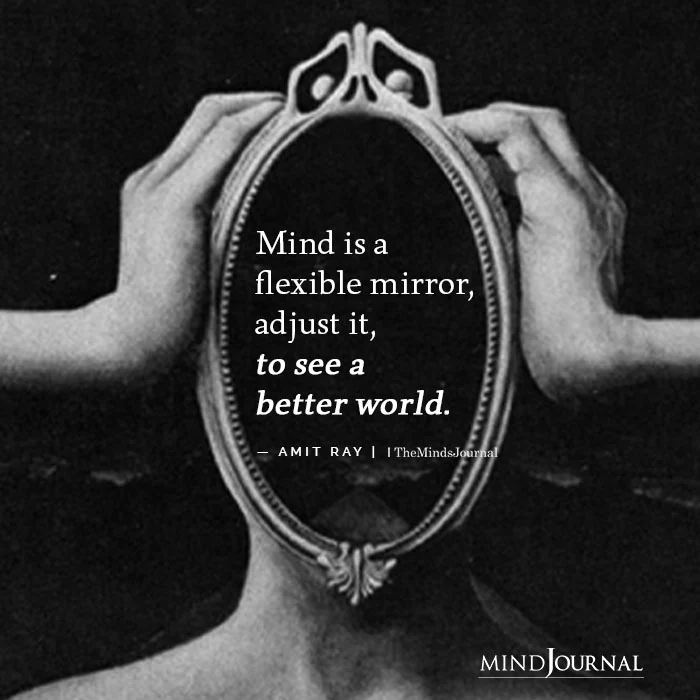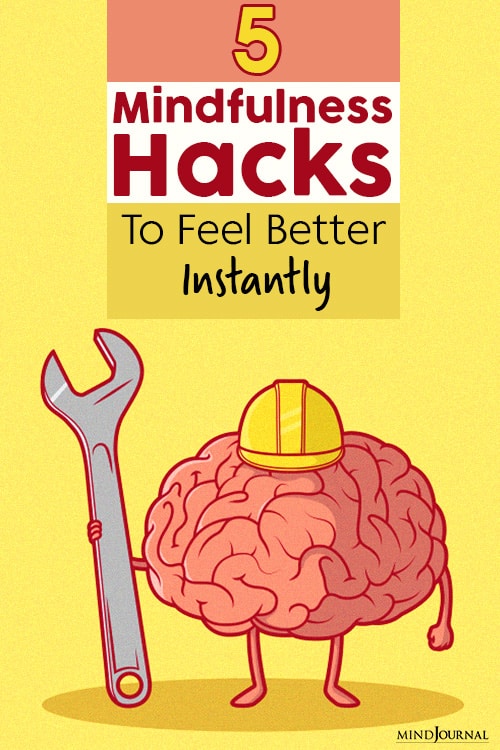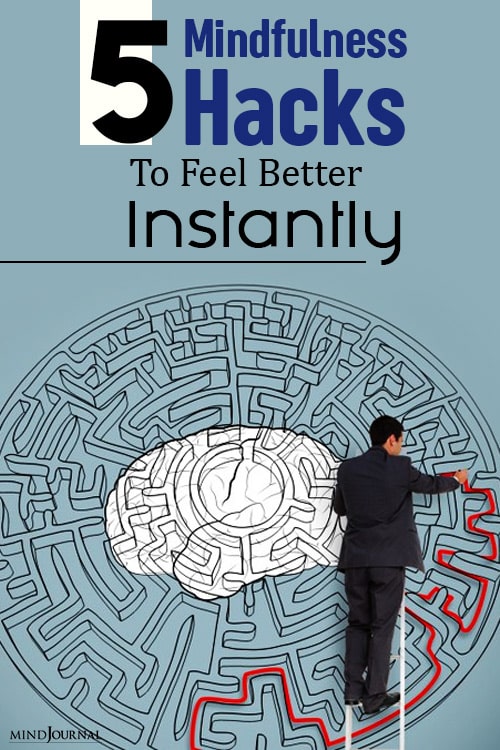Stuck with a negative mindset? Being mindful will help you in the long run. Here are 5 mindfulness hacks that will allow you to live a fulfilling life.
Our negative mind states can feel so powerful that we can easily lose sight of how quickly they can change for the better. They are significantly more malleable than you may believe. It’s no understatement to say that they’re often based on a house of cards. Written By Jason N. Linder
These mental hacks originate from the Stoic Roman philosophers Seneca and Marcus Aurelius. We don’t need to re-invent the wheel; they had the answers thousands of years ago, before contemporary mindfulness, as we practice it in the West, was even a “thing.” Stoicism has been brought to the mainstream by contemporary philosopher Bill Irvine, as well as mindfulness teacher Sam Harris.
So here’s the crash course: What has happened to us is tragic; our quality of life is considerably better than that of our ancestors, but we’re not happier than they were. This depressing phenomenon is called hedonic adaptation: We get used to new pleasures, sources of happiness, and conveniences, and, thus, our threshold for what makes us happy inexorably rises. We become increasingly dissatisfied even as our lives get increasingly better.
For example, contemporarily, we continue to get used to luxuries, such as widespread internet, GPS, running water, and a flushing toilet, to the point that we have stopped appreciating them and, even worse, merely expect them.
When this happens, our hedonic set-point (what needs to happen to make us happy, or feel good now) continues to climb progressively higher, leaving us in a state of perpetual dissatisfaction, no matter how much better our lives get.
To me, this is nothing short of a tragedy.
Related: 7 Daily Habits To Help You Practice Mindfulness Effectively
Unfortunately, the consumerist culture in the United States encourages hedonic adaptation by always trying to get us hooked on the “next best thing.” You can see this when WiFi or your iPhone malfunctions for a few minutes, and you righteously and indignantly complain: we’ve become entitled to a luxury that’s only over a decade old.
It also explains why a significant number of millionaires feel like failures because they’re not billionaires, and may be clinically depressed because of it. I’m not joking. Fortunately, we can interrupt hedonic adaptation and literally lower our hedonic set-points to wire our brains for more happiness.
Remember that the positive is less “sticky” to our brains than the negative. For survival reasons; negative stimuli are more likely to kill us, so historically we have needed to pay more attention to them, and evolution doesn’t care about our happiness, only our reproduction. Thus we need to purposely cultivate well-being to balance out this evolutionary force. Here are five hacks.
Mindfulness Hacks: 5 Ways To Practice Mindfulness
1. Negative Visualization Is When You Intentionally Imagine How Much Worse Your Life Would Be If You Didn’t Have What You Have.
This can refer to your relationships, car, friends, health, five intact senses, etc. It also includes imagining all the things that could have gone wrong, but haven’t. I know this doesn’t sound fun, but you’ll see its value after you do it, just like brushing your teeth when you just want to sleep, or going to work out even when you’re in a lethargic stupor.
This seemingly basic mental hack directly lowers your hedonic set-point (so you’re happier more easily) and buffers you against the tragic hedonic adaptation ubiquitous in our society.
So, consider a few things, right now, that could be going wrong or could have gone wrong, but haven’t. Imagine all the car accidents you could have had, earthquakes you could have endured, birth defects you could have been born with, or cancer you could have been diagnosed with, etc.
Also, consider what it would be like to lose a few things that you really value now, such as your job, home, computer, spouse, health, and not having what you have.
Starting to feel lucky in a way you weren’t before? This breaks the continual pattern of always wanting the next thing instead of savoring what you have. Happiness is actually more about wanting what you already have than getting the next thing.
Related: 7 Simple Strategies to Increasing Mindfulness in as Little as 30 Seconds
2. Setbacks Will Happen; They’re Inevitable.
You’ll bang your foot, you’ll get a ticket, a loved one will get sick, etc. So, wishing them away or dreading them simply causes more suffering. There’s an attractive alternative. Projective visualization is when you imagine a recent setback actually happening to someone else.
Let me clarify too that this doesn’t mean wishing it happens to someone else, just imagining it for a few moments. This helps us get distance from our pain because others’ misfortune is more palatable than our own. It really can take the edge off our own pain and see it more objectively; helping us see the forest instead of fixating on the trees.
If a close friend had a setback, what would you tell them? How would you feel about what happened to them? It would seem more manageable and not as bad, right? This, in fact, is the “witnessing perspective” that we cultivate in mindfulness meditation.
It’s also the root of loving-kindness meditation, in which we deliberately cultivate feelings of compassion and wellness for all. This is also similar to video-game framing, in which you imagine a setback like you’re in a video game, and it’s a test of your resilience and strength—an enticing challenge to overcome.

3. Adopt The Story-Telling Frame.
Let’s be honest. Life is boring without any setbacks or challenges. When misfortune strikes, which it inevitably will, instead of brooding and ruminating on it, you can document it, as carefully as you can, in a journal or free association format (written or with spoken audio techs such as Siri or Google).
Setbacks and misfortune, ironically, make great stories. Humans have a unique affinity for stories; some of the best books and movies originate from this mental hack.
4. Savor Your Happiest Moments.
You can learn to put a smile in your mind by merely considering the happiest moments of your life or those of your loved ones. This takes a few minutes, and you can make it one of the best meditations in your life. Choose a joyous specific moment and imagine it visually, then access what you were hearing and feeling as well to engage all five senses to deepen it enough and savor your joy.
You can also picture your loved one’s smile in your mind, as well as literally hold your own smile. An additional hack: Holding a smile actually tricks our brain into being even happier (even if you know this!).
Related: From Mindfulness To Meaningfulness
5. Embody The “Last Time” Frame.
The sobering truth is that there will be a “last time” you do everything. I mean everything. With this in mind, even the most unpleasant and mundane tasks, such as cleaning your bathroom, being stuck in bumper-to-bumper traffic, or taking out the trash, can have a precious and poignant flavor to them. Slow down and enjoy them, at least a little; you may miss them later on.
The truth is that your life can look like a miracle, or you can endlessly find ways it can be better. The difference comes down to learning new and easy habits to lower your hedonic set-point and wire your brain toward happiness. Which do you prefer?
Copyright Jason Linder, LMFT. This post is not meant to substitute for psychotherapy with a competent provider.
Practice mindfulness to make your life more meaningful! Share your thoughts about these mental hacks in the comments below!
Written By Jason N. Linder Originally Appeared On Psychology Today












Leave a Reply